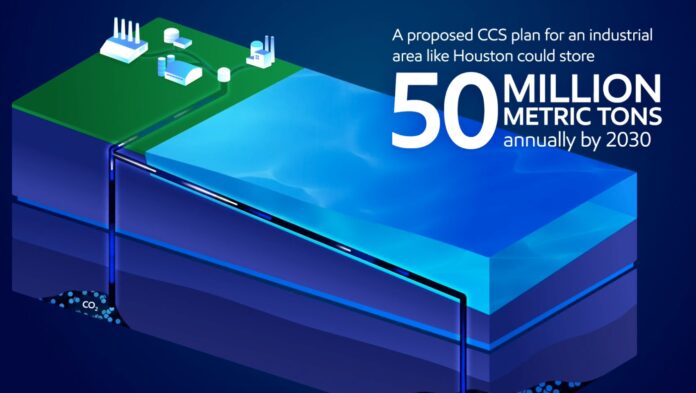Exxon Mobil Corporation has executed the largest offshore carbon dioxide (CO2) storage lease in U.S. history with the Texas General Land Office.
The lease is for over 271,000 acres and complements the onshore CO2 storage program ExxonMobil is developing. The company said this lease solidifies the U.S. Gulf Coast as a carbon capture and storage leader.
The carbon dioxide, collected from various industry sources, is pumped beneath the seabed and thousands of feet underground into depleted oil and gas fields beneath impervious rock layers, as explained in this video:
It’s unclear what impact the development of massive CO2 storage in the Gulf of Mexico has on the fledgling carbon storage industry that is being created in Alaska, led by Gov. Mike Dunleavy, who is looking for an “all of the above” approach to energy.
This year, the Alaska Legislature passed the governor’s legislation that created a commercial framework to regulate carbon storage, natural gas storage, as well as state financing for natural gas in Cook Inlet and geothermal energy. It is the administration’s hope that such an industry will provide a new revenue stream for Alaska. The market for Alaska would primarily be Japan, at this point. That island nation is looking for a place to bury its CO2.
The Exxon lease will primarily benefit the Texas Permanent School Fund, providing millions in funding to Texas public schools, the State land office said.
Exxon’s history in Alaska Alaska spans nearly 100 years since drilling its first well at Yakataga Beach in 1925.
Since then, the company explored throughout Alaska, including Cook Inlet, the Alaska Peninsula, St. George Basin, Norton Sound, Navarin Basin, Yukon Flats, Beaufort Sea, and the North Slope. It is one of the top three producers in Alaska and owns a share in the Trans Alaska Pipeline. After developing the Point Thomson field, ExxonMobil transferred operations to Hilcorp, but retains a working interest in Point Thomson, Prudhoe Bay, Endicott, and Kuparuk fields.
